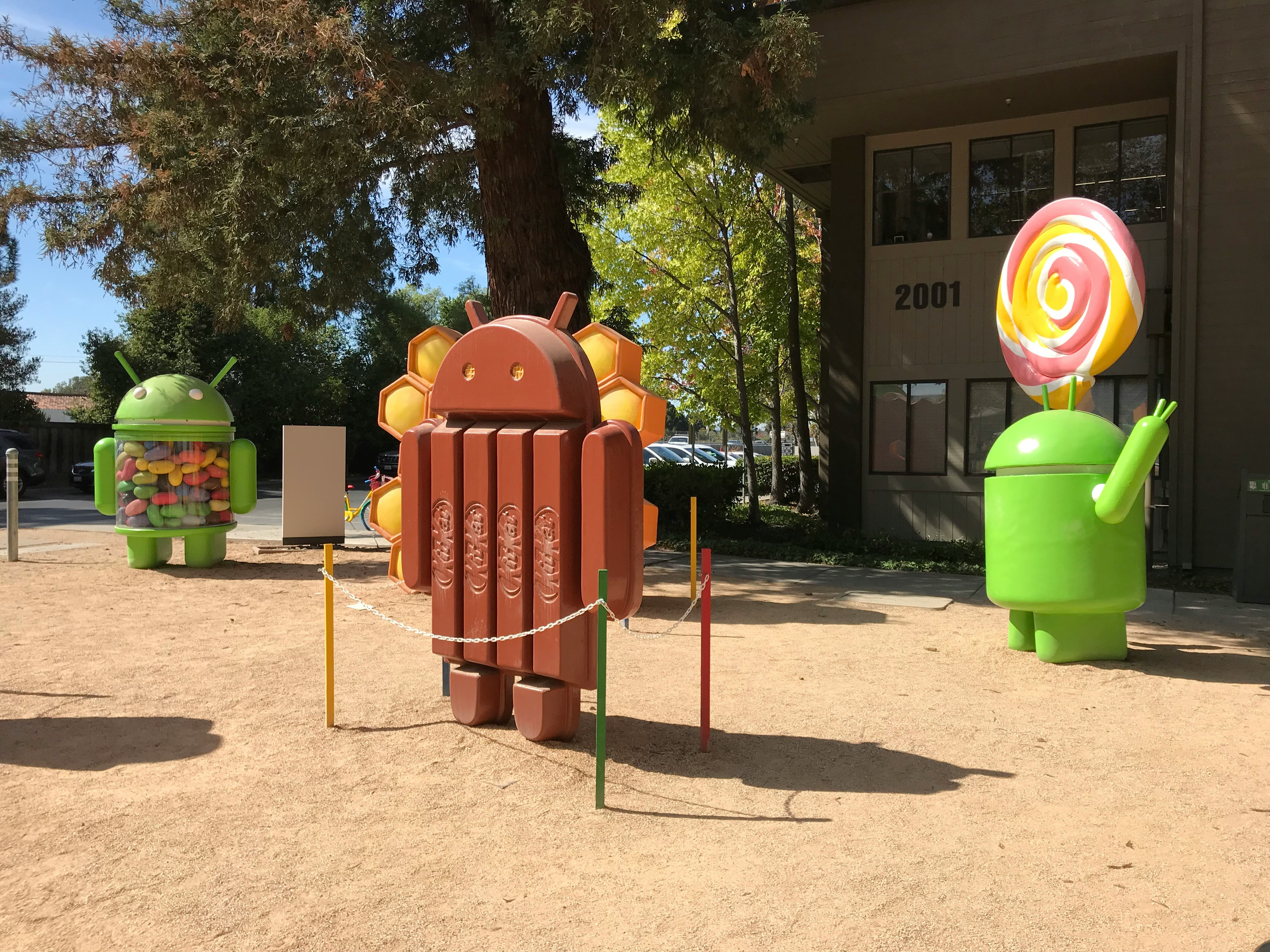Can AI Content Rank On Google?
By RG team · 11 min read
Last Updated on June 8, 2023
Wait a minute...

Introduction

Photo by Clay Banks on Unsplash
Artificial Intelligence (AI) has grown significantly in popularity over the years, finding extensive use in various industries, including content creation. With AI systems such as GPT-4, it's now easier to streamline content creation processes and optimize workflow. One question that content creators frequently ask is whether AI-generated content can rank on Google.
To answer the question, it's important to understand how Google ranks content and the criteria involved. Since Google is focused on delivering quality search results, they have implemented stringent measures to ensure that content that appears in the search engine results page (SERP) meets their standards. This article aims to clarify whether AI-generated content can rank on Google and, if so, the factors to optimize to increase the chances of ranking.
Understanding AI Content and Google Ranking

Photo by Guido Coppa on Unsplash
Before considering whether AI-generated content can rank on Google, it's essential to take a closer look at AI content's nuances and Google ranking factors. AI content refers to content created by machines that employ algorithms to format and generate written or visual content. These algorithms can quickly analyze data based on user inputs, machine learning, and natural language processing to produce the desired output.
On the other hand, Google ranking factors refer to the criteria employed by Google when ranking content in their SERPs. Google prioritizes factors such as content quality, relevance, user experience, and authority. In line with this, Google has guidelines that content creators should follow, referred to as E-A-T principles. The E-A-T principles focus on three main factors: Expertise, Authoritativeness, and Trustworthiness. It's critical to create content that exhibits both high-quality and meets the E-A-T criteria to rank on Google.
These factors are essential to consider when trying to rank AI-generated content on Google. By focusing on keyword-optimized, high-quality content, and using legitimate sources for backlinks, content creators can improve the chances of their content ranking on Google. Let's delve deeper into what content quality and E-A-T principles entail.
Factors affecting AI Content Ranking on Google
When it comes to SEO and content ranking on Google, AI-generated content can rank as long as it meets Google's E-A-T principles and quality guidelines. Both the quality of the content and how it aligns with Google ranking factors are crucial to determine the content's ranking. Here are some factors that can affect ranking:
Content Quality and Relevance
Content quality refers to how the information provided in the content satisfies specific search queries. Relevance, on the other hand, defines how well content matches user intent. Content creators must create content that is beneficial, informative and provides value to users. It's vital to create AI-generated content that not only fits the search intentions of the target audience but also uses grammatically correct language, is well-researched, and free of plagiarized content.
Target keywords
Keyword research is crucial for content optimization, especially for AI-generated content. Conduct thorough research and focus on creating content based on long-tail keywords that have low competition but high search volume.
E-A-T Principles
As mentioned earlier, the E-A-T principles focus on three key factors that Google uses to determine the quality of a page's content: Expertise, Authoritativeness, and Trustworthiness. Google considers the expertise of the content creators and the website, authoritative backlinks, and user trustworthiness when ranking sites. It's essential to continually update and improve content to reflect an authoritative position on the topic or industry niche.
Legitimate Backlinks
Backlinks are critical to improving the search engine ranking of any content, whether written by AI or humans. When Google crawls the internet, it follows links to find and rank pages. This means that creating high-quality backlinks is essential for improving ranking. Legitimate backlinks to a page or website help to prove the site's authoritativeness and expertise on specific topics, which translates into better ranking.
The following section will cover examples of AI content that has ranked on Google.
Instances of AI Content Ranking on Google
These examples demonstrate that AI-generated content can meet Google's quality guidelines and provide value to users. However, it is critical to note that such success requires content creators to create high-quality original content that complies with the E-A-T principles, is free from plagiarism, and includes legitimate backlinks. When used effectively, AI-generated content can provide significant benefits for businesses, including increased search engine rankings, targeted traffic, and improved business growth.
The good news is that AI-generated content can rank on Google despite the debate on whether it's ethical to use machines for content creation. Google algorithms can't tell if content is written by humans or machines; instead, content value and relevance are crucial ranking factors. Instances of AI Content Ranking on Google are increasing, demonstrating that it is possible for AI-generated content to rank well on search engine result pages (SERPs). Here are some instances where AI-generated content has managed to rank on Google:
Forbes
One example is the news website, Forbes. In 2019, the publication revealed that it uses an AI platform called Bertie to assist journalists in drafting article introductions. This generated content not only ranked on SERPs, but also increased traffic to Forbes' website.
ScienceDaily
Another successful example of AI-generated content ranking on Google is the science news website, ScienceDaily. In 2017, the website revealed it had been using an AI algorithm to generate articles on research topics. The generated content ranked on Google and earned the website a high volume of targeted traffic.
Reuters' Financial News
Reuters started using a piece of AI technology known as News Tracer in 2017. The AI technology comprises an algorithm that can scan more than 30,000 social media posts and online news stories within seconds, identify those that are valuable news items, and produce a summary in a few seconds.
The AI-generated summaries are then used to create articles that cater to news outlets like Reuters. Several of these machine-written articles have managed to rank high in Google's SERPs. In one instance, a machine-generated article titled "The rise of the robotic manager" ranked in the top three results for its search term.
GPT-4
Other examples of AI-generated content ranking high on Google include content generated by GPT-4 language model, which produces text that is difficult to differentiate from human writing. A product review article generated by GPT-4 ranked in the first position on Google SERPs for "Best Smartphones under $500." Another example is the AI-generated news piece about a minor earthquake that occurred in California; the article ranked number one on Google's SERP.
These examples of successful AI-generated content rankings on Google are clear indicators that AI-generated content is now becoming a part of the mainstream. As long as AI-generated content is created for people first and foremost, and not just for the sake of ranking high on search engines, it has the potential to generate targeted traffic and help businesses meet their content marketing goals. With Google's new position and policy for AI-generated content, it's evident that AI-generated content is becoming more valuable, and effective for businesses. The potential for AI technology is immense, and with the introduction of GPT-4 language model, it's exciting to see what the future holds for AI content. As businesses look to improve their content creation process, AI technology holds great promise, and businesses that embrace it will likely see significant benefits.
Potential Risks of AI Content on Google Ranking

While AI content can rank on Google's SERP, there are risks involved that content creators must consider. The primary challenge with AI-generated content is it can be challenging to generate content that meets Google's E-A-T criteria. Here are some of the potential risks that content creators should be aware of:
Duplicate Content
AI-generated content is at risk of being flagged as duplicate content by search engines. It's important to avoid producing content that is copied and pasted from other sources or appeared on another site as this is seen as low-quality content by search engines and hurts your rankings.
Keyword Stuffing
Content creators must be careful not to over-optimize keywords when generating SEO-friendly content with AI. Keyword stuffing is a tactic that search engines consider spam, which can result in content being penalized or even removed from search engine results altogether.
Lack of Creativity
AI-generated content can lack personality or a human touch, making it challenging to connect with the target audience. This could lead to decreased user engagement and lower click-through rates, affecting your rankings.
One of the significant concerns about AI-generated content is that it might lack the human touch. Machines can't replicate the emotions and creativity that humans put into content creation. Furthermore, AI-generated content's quality varies, with some articles being incoherent and unstructured, which can harm a website's authority and reputation.
Originality
Another concern is plagiarism. With the internet full of content, it's challenging to determine if an AI-generated article is entirely original. Plagiarized content can receive a Google penalty, which can result in low rankings or even removal from search results. Therefore, it's crucial to be careful when using AI-generated content and ensure that humans edit and review the final product.
These risks don't mean that AI-generated content is something to avoid at all costs; it merely means that content creators need to be diligent in ensuring that their content meets Google's E-A-T criteria and avoid over-optimization of keywords. We'll discuss how to optimize AI-generated content in the next section.
Optimizing AI-Generated Content for Google Search
Optimizing AI-generated content for search engines is no different from optimizing conventional content. Here are a few strategies to optimize AI-generated content for Google search:
Thorough research: Conduct thorough research on the topic and audience to whom the content is targeted. This helps ensure that the content is relevant, informative, and tailored to the audience's needs and interests.
Use of Keywords: Identify the target keywords and use them in the right places throughout the content, including the title, header tags, meta description, and body content.
Quality Control: Review and edit AI-generated content before publishing to eliminate any syntax errors and improve the language's flow and readability. We know that AI tools are not perfect, and you may have to clean up the generated content to meet Google's quality standards.
Link Building: When creating AI-generated content, include relevant internal and external links to improve the overall user experience. Ensure that the external links are of high quality and relevant to the content at hand.
Optimize Images and Videos: Using relevant images and videos in your AI-generated content can improve its engagement levels and ranking on Google. Ensure that the images and videos used are high-quality, original and optimized for SEO.
By optimizing AI-generated content for search engines, it's possible to improve its potential to rank higher on Google SERPs.
Next, let's explore the advantages and disadvantages of using AI-generated content.
Advantages and Disadvantages of AI-Generated Content
Like any other technology, AI-generated content has its advantages and disadvantages. Below are some advantages and disadvantages of AI-generated content.
Advantages of AI-Generated Content
Cost-effective: AI-generated content is relatively cheaper than content created by human writers. By using AI-powered tools, content publishers can save a significant amount of money on content creation costs.
Saves Time: AI-generated content saves time and is ideal for websites and businesses that need to produce content quickly. Unlike human writers, AI tools can produce content faster and more efficiently.
Customization: AI-generated content customization options allow unique content to target specific readers and meet their information needs.
Versatility: Content produced by AI tools can be used for various purposes, including web content, blog posts, social media posts, product descriptions, and email communications.
Disadvantages of AI-Generated Content
Limited Creativity: One of the significant limitations of AI-generated content is the lack of creativity and uniqueness. It cannot match human creativity, style, and tone of voice that captures the reader's attention and interest.
Quality Control: The quality of AI-generated content is a concern, as it's generated by software with limited ability to understand the content's context. Therefore, the generated content may not meet quality standards and could negatively impact the brand and editing content to make it quality may somewhat add to the time used.
Lack of Empathy: AI-generated content lacks human touch and empathy. Consequently, it may not establish a rapport with readers or make lasting impressions.
Understanding the pros and cons of AI-generated content is vital when deciding whether to use it in content creation or not.
Next, let's summarize the main points covered in this article.
Conclusion
In conclusion, AI-generated content can rank on Google's SERP so long as it meets Google's E-A-T principles and quality guidelines. By focusing on keyword optimization, generating high-quality, relevant, and authoritative content, and legitimate backlinks, content creators can adequately optimize their AI content to improve the chances of ranking on Google. Though there are potential risks involved, several optimization techniques and tools can help content creators overcome these challenges and optimize their AI content for Google ranking. With the rise of machine learning and AI in content creation, content creators must leverage these exciting opportunities to enhance their content's quality and ranking.



